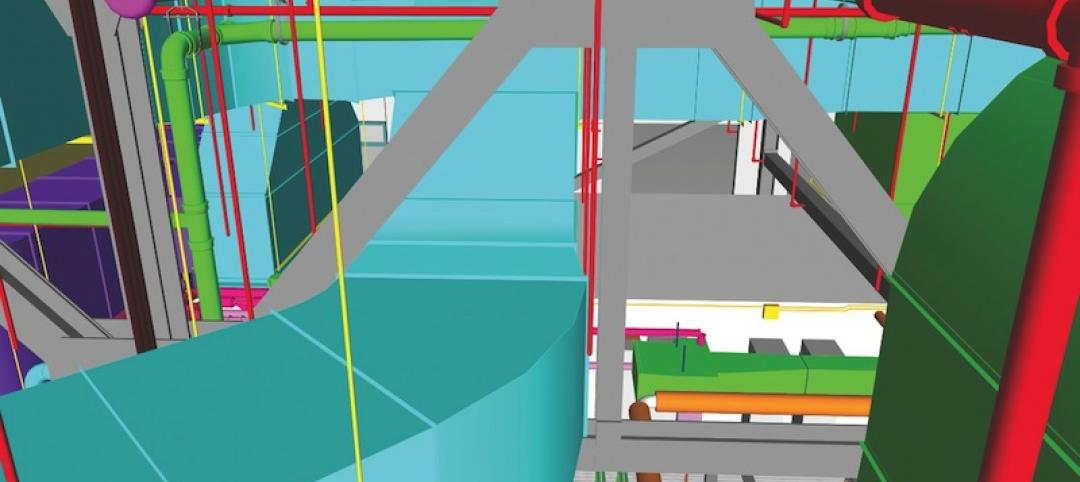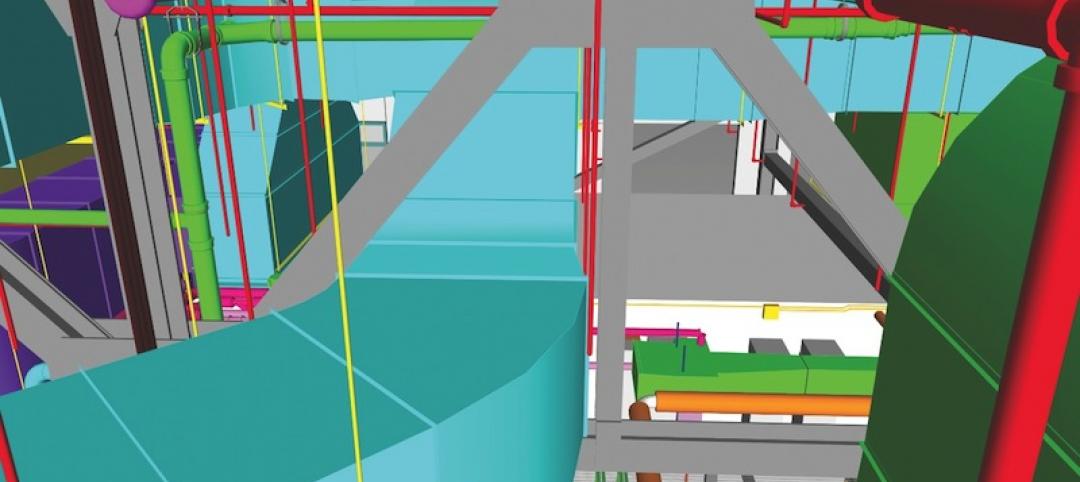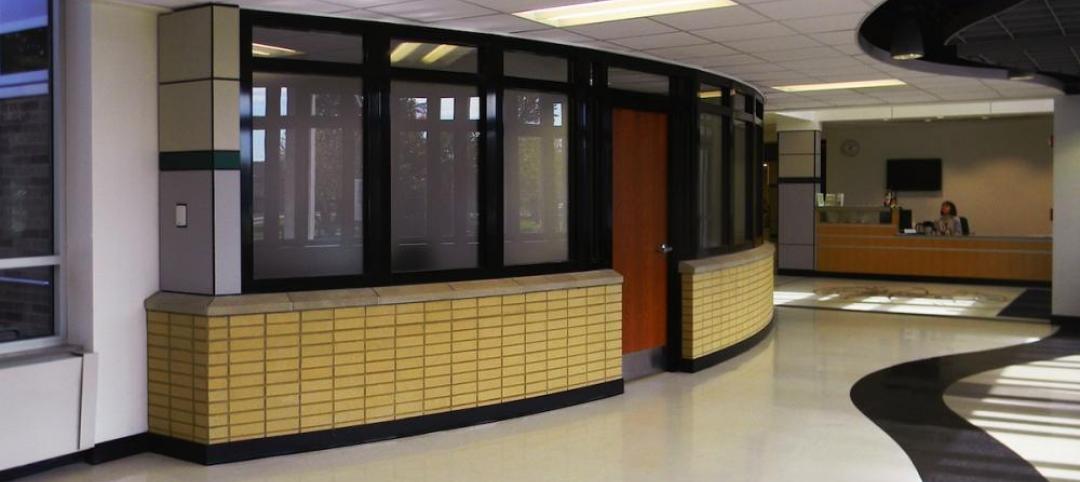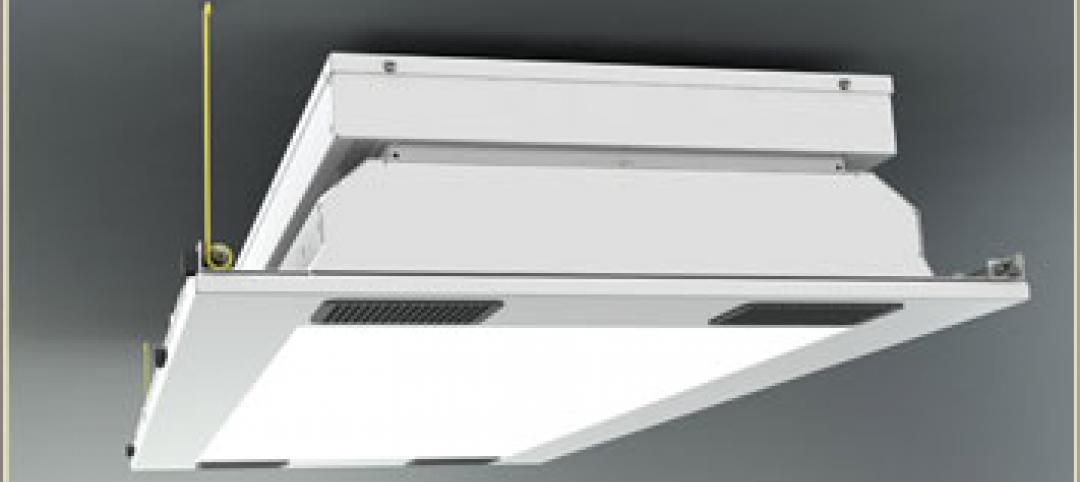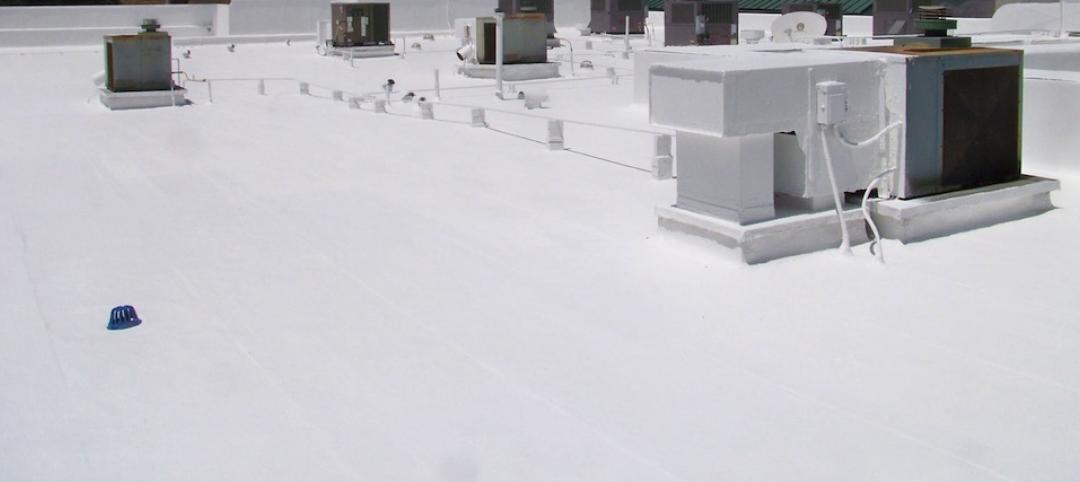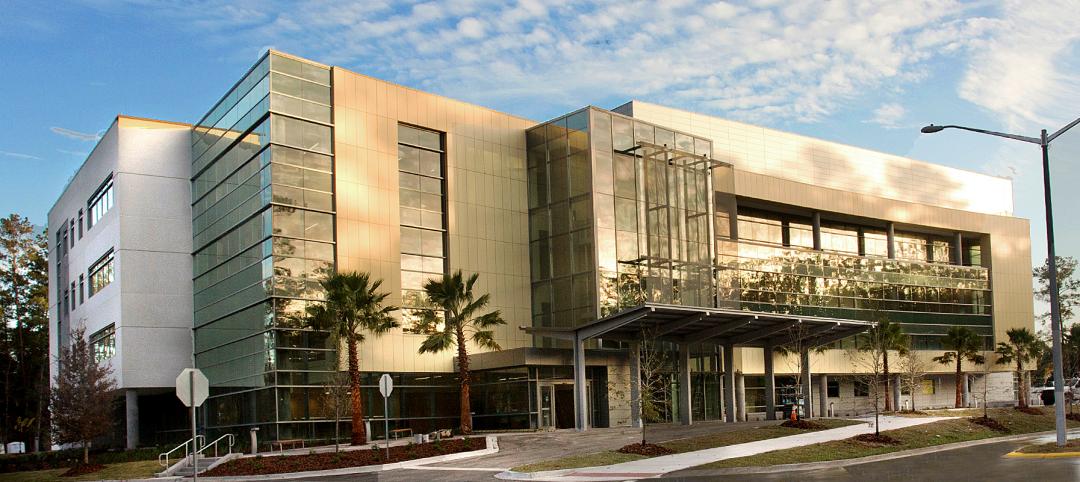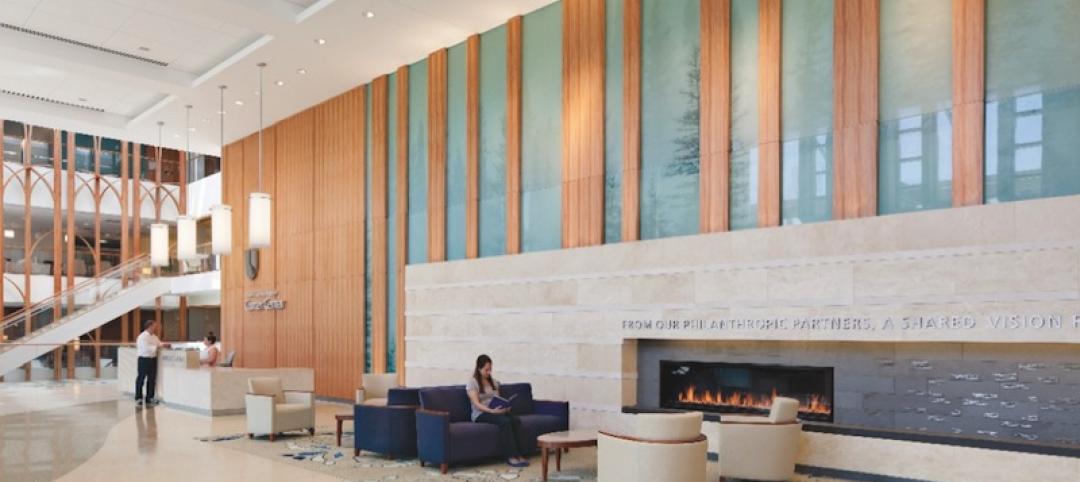
The team behind the new Holyoke (Mass.) Health Center was aiming for more than the renovation of a single building—they were hoping to revive an entire community.
Holyoke's central business district was built in the 19th century as part of a planned industrial town, but over the years it had fallen into disrepair. Among the many empty storefronts and dilapidated buildings stood three that used to make up the McAuslan & Wakelin department store. Where most people saw broken glass and crumbling brick, the CEO of the Holyoke Health Center instead saw a medical mall—a new center of downtown activity and business where the city's large, underserved low-income community could find access to health care.
Boston's Steffian Bradley Architects (SBA) began work on reconstructing the 110,000-sf complex into a space where a wide variety of health organizations could come together under one roof. The facility would house a medical suite for specialists such as radiologists, physical therapists, and midwives. There would be a dental practice, patient education spaces, a teaching kitchen, health service enrollment centers, and a large central plaza to improve wayfinding. All told, planners expected the complex to serve 17,000 patients and create more than 350 new jobs.
 |
| A four-story glass atrium connects the health center’s three buildings (left). The balustrade on the Dwight Building, which sits on the corner, had to be matched to the originals to qualify for historic grants (right). PHOTO: ROBERT BENSON PHOTOGRAPHY |
The buildings first needed some work. The three structures, all built around the turn of the 20th century, were well-used over the years and little evidence of their original interior appearance remained. Some features, such as mosaic tile floors, polished marble stair treads, and wainscoting, were intact. But others, such as the buildings' decorative tin ceilings, were scarred from the addition of room partitions and mechanical runs.
Then, several months into the design process, the client discovered they would need federal historic restoration grants to complete the project—and that meant returning the buildings to their former glory. To accommodate this, SBA undertook forensics and historical research in order to document and re-create original architectural features. For instance, a balustrade that formed the roof cornice had been demolished prior to the decision to apply for federal funding. To rebuild it, SBA took a mold of a remaining baluster and used it to duplicate the originals.
Other federal requirements took more ingenuity to overcome. The grant stipulated that walls had to be re-plastered rather than covered with gypsum board. But with the prospect of strollers and wheelchairs banging into the walls every day, the team worried that standard plaster couldn't take the blows without crumbling. SBA solved the problem by using Xorel wallcovering, a durable polyethylene textile that softens hard knocks, allowing the plaster to hold its shape.
The project's pride and joy lies at its center, in the new glass atrium that links the three buildings and acts as a transparent interior main street. The atrium also makes the Holyoke Health Center MAAB/ADA compliant by ganging together the buildings' disparate grade levels through a series of stairs and ramps, as well as providing space for two new hospital elevators.
Opened in early 2006, the Holyoke Health Center has served several thousand patients and inspired the redevelopment of many surrounding properties—meeting its original goal of revitalizing the Holyoke community.
Related Stories
| May 1, 2013
Groups urge Congress: Keep energy conservation requirements for government buildings
More than 350 companies urge rejection of special interest efforts to gut key parts of Energy Independence and Security Act
| May 1, 2013
World’s tallest children’s hospital pushes BIM to the extreme
The Building Team for the 23-story Lurie Children’s Hospital in Chicago implements an integrated BIM/VDC workflow to execute a complex vertical program.
| Apr 30, 2013
Tips for designing with fire rated glass - AIA/CES course
Kate Steel of Steel Consulting Services offers tips and advice for choosing the correct code-compliant glazing product for every fire-rated application. This BD+C University class is worth 1.0 AIA LU/HSW.
| Apr 30, 2013
Healthcare lighting innovation: Overhead fixture uses UV to kill airborne pathogens
Designed specifically for hospitals, nursing homes, child care centers, and other healthcare facilities where infection control is a concern, the Arcalux Health Risk Management System (HRMS) is an energy-efficient lighting fixture that doubles as a germ-killing machine.
| Apr 24, 2013
North Carolina bill would ban green rating systems that put state lumber industry at disadvantage
North Carolina lawmakers have introduced state legislation that would restrict the use of national green building rating programs, including LEED, on public projects.
| Apr 24, 2013
Los Angeles may add cool roofs to its building code
Los Angeles Mayor Antonio Villaraigosa wants cool roofs added to the city’s building code. He is also asking the Department of Water and Power (LADWP) to create incentives that make it financially attractive for homeowners to install cool roofs.
| Apr 10, 2013
ASHRAE publishes second edition to HVAC manual for healthcare facilities
The American Society of Heating, Refrigerating and Air-Conditioning Engineers (ASHRAE) has published a second edition of its “HVAC Design Manual for Hospitals and Clinics.”
| Apr 2, 2013
6 lobby design tips
If you do hotels, schools, student unions, office buildings, performing arts centers, transportation facilities, or any structure with a lobby, here are six principles from healthcare lobby design that make for happier users—and more satisfied owners.


